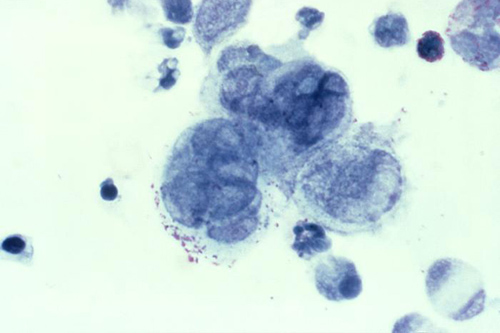A new drug, called pritelivir, may offer a new treatment option for patients with genital herpes, a new industry-sponsored – study led by University of Washington researchers has found.
The study appears in this week’s issue of the New England Journal of Medicine. The lead author is Anna Wald, M.D., professor of medicine, epidemiology, and laboratory medicine, and medical director at the Virology Research Clinic at the University of Washington. Other UW coauthors include Dr. Amalia Magaret, Dr. Christine Johnston, Dr. Lawrence Corey, Dr. Meei-Li Huang and Stacy Selke.
“These data suggest this drug may be a potent treatment for HSV-2,” said Wald. “That’s exciting because we have not had a new drug for herpes for three decades. In addition, our approach of using viral shedding as an endpoint clearly defined the dose that should be used in future studies”
Roughly one in six Americans aged 14 to 49 years has genital herpes. Most recurrent genital herpes are caused by with herpes simplex virus 2 (HSV-2). The infection, which is usually transmitted through sexual contact, can cause pain and sores in the genital area, anal region and lips.
But in most cases symptoms can be mild or altogether absent. As a result, most people who have been infected with HSV-2 are unaware they are infected, though they can still transmit the virus to others.
Currently, there are treatments that shorten outbreaks, prevent recurrences and reduce transmission to sex partners, and but there is no cure.
These treatments include the prescription drugs Acyclovir (Zovirax), Valacyclovir (Valtrex) and Famciclovir (Famvir), which all inhibit viral replication by inhibiting a viral enzyme called HSV DNA polymerase.
The new drug, pritelivir, is the first in a new class of drugs that inhibit HSV by targeting a different part of the virus’s replication machinery, the helicase-primase enzyme complex.
In the new study, 156 patients with genital HSV-2 infection were randomized to receive either placebo or four different dosage regimens of the new drug for 28 days.
The four dosing regimens for pritelivir were: a loading dose of 20 mg followed by a daily dose of 5 mg; a loading dose of 100 mg followed by a daily dose of 25 mg; a loading dose of 300 mg followed by a daily dose of 75 mg; and a weekly dose of 400 mg.
All the patients kept a diary recording any signs and symptoms of the infection and swabbed their genital areas daily. The swabs were then tested to detect and quantify any shedding of the virus.
The 75 mg a day dosing schedule proved to be the most effective, the study found. That dose was associated with an 87 percent reduction in days of viral shedding, from 16.6 percent among those taking the placebo to 2.1 percent among those taking 75 mg of the drug a day. What’s more, substantially less virus was present during breakthrough shedding in persons receiving pritelivir, another indication of the drug’s efficacy.
The 75 mg treatment regimen was also associated with fewer days with genital lesions. Compared to those on placebo, who reported genital lesions on 9.0 percent of days, those on pritelivir 75 mg a day reported lesions only 1.2 percent of days, an 87 percent reduction.
Side effects of the treatment were few and mild, and there were no signs of drug resistance developing. However, further clinical studies of the drug are on hold, while the U.S. Food and Drug investigates the findings of a toxicology study in which monkeys receiving high doses of pritelivir, doses 70 to 900 times as high as a 75 mg dose in humans, developed blood and skin abnormalities.
Read the New England Journal of Medicine paper:
Wald A et al. Helicase–Primase Inhibitor Pritelivir for HSV-2 Infection. N Engl J Med 2014;370:201-10. DOI: 10.1056/NEJMoa1301150
– By Michael McCarthy
*Source: University of Washington

